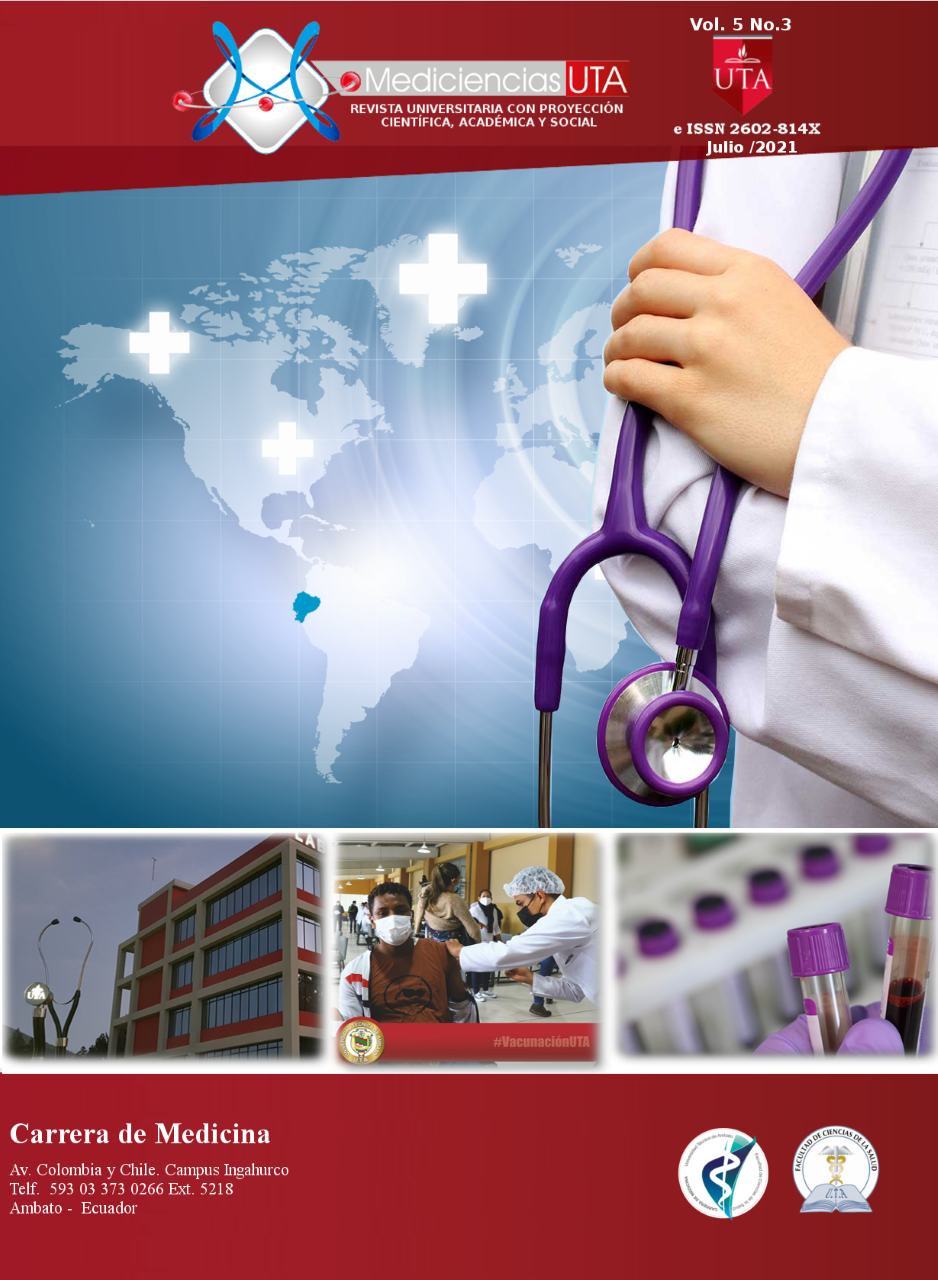Knowledge and compliance about skin to skin contact in two health units in the city of Quito- Ecuador
Main Article Content
Abstract
Introduction: Skin to skin contact between mother and child is a favorable health practice, with biological and psychological benefits, in the short and long term.
Objectives: Evaluate the level of knowledge about skin to skin contact and its compliance in two medical units in the city of Quito-Ecuador.
Materials and Methods: Descriptive, cross-sectional study. A survey was applied to specialist doctors, resident doctors and rotating medicine interns, to assess knowledge: and an observation sheet in the delivery room to verify compliance with the skin to skin contact steps.Results: It was evidenced that health personnel have a low level of knowledge (91.4%), being the subjects with the lowest score: the optimal time to carry out skin to skin contact, the number of indispensable people in the reception of the newborn and the practice of skin to skin contact in cesarean births. Compliance with early attachment was inadequate in 68% of the births observed, the step with the highest non-compliance was maintaining skin-to-skin contact between mother and child for at least one hour. There were no statistically significant relationships between the level of knowledge of skin to skin contact with the academic degree (p = 0.34), and the operative unit (p = 0.69), nor between compliance and the hours of delivery care (p = 0.98).
Conclusions: Health personnel are unaware of important aspects of skin to skin contact, and compliance with it is inadequate in most cases.



